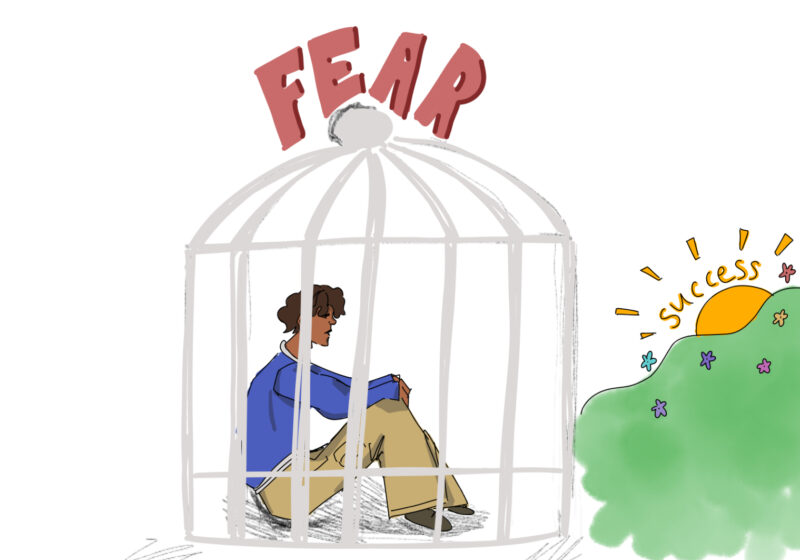This article contains spoilers.
I truly wanted to write a CT Recommends on “The Babadook.” Because I do recommend it.
But I really don’t want to have to watch it again.
Babadook is a 2014 psychological thriller with a very annoying and creepy child, a mother who dreams of her dead husband, a dog that (to be honest) dies, and, of course, “The Babadook,” the acid-induced storybook character from your worst nightmare ever. As someone who doesn’t watch scary movies and tends to wake up at night, hear all the spooky creaks in the house, and assume the worst, I probably never should have watched it in the first place. But I’m glad I did. It’s a story about grief and depression—two subjects rarely talked about in mainstream media, and even more rarely talked about correctly.
The main character, Amelia Vanek, is suffering from the recent loss of her husband, and the screeching defiance of her six-year-old son, Sam. At first, it seems the movie is just going to rely on an evil child gimmick, but when Sam chooses a pop-up book called “The Babadook” for a bedtime story, you realize there’s something much deeper about how this movie will scare you.
The book calls the Babadook, “a friend of you and me,” someone you’ll see “if you look.” Shortly after reading, Amelia finds glass in her food. Doors open and close in the house without her. She dreams of becoming a demonic figure, more than willing to stab her own son. Wanting to avoid her recurring nightmares with the Babadook and her late husband, Amelia refuses to sleep and slides into insanity. It’s unclear how much of the haunting she imagines and how much is real.
Part of the horror of this movie for me was that I had no idea I could hate a child so much. The Babadook’s main threat to Amelia is that he will possess her and murder Sam. In a way, you actually almost want him to. The friend I watched the movie with was rooting for this the whole time, because Sam is everything that people detest in children: annoying, loud, whiny, and egotistical.
Meanwhile, his mother is dealing with a crushing grief, her husband appearing to her through dreams. Sam’s personality and need for care becomes a barrier to Amelia’s recuperation, and you see the physical toll it takes on her. Unable to push away her depression, she fears instead it’ll take over her personality until she rejects even her own son.
Personally, I couldn’t sleep after I first saw the movie. I was with a friend who insisted it wasn’t scary. But there’s a lot of imagery that stuck: Amelia’s suddenly demonic face in the window as police search for her, the storybook imagery depicting Amelia killing her dog and son, a dreamy television sequence that brings skeletons, mermaids, magicians, and the Babadook all together in a black and white surreal nightmare.
As someone who has very vivid dreams, this was enough for me.
From people who watch scary movies regularly, though, I’ve heard “The Babadook” isn’t that scary. Despite its award-winning status (AACTA Best Film, Best Direction, Best Original Screenplay, Empire Awards Best Feature, New York Film Critics Circle Awards Best First Feature, and two Critics’ Choice Award nominations), it lacks in something that will keep horror movie buffs awake at night.
What maybe makes the movie less scary for others is that the most threatening forces in the film are real. The idea of a mother giving up on her child because of depression isn’t something we need special effects to imagine. The Babadook, which is never defeated and just lives in the basement, is tended to by Amelia, a clear metaphor for how grief and depression never actually leave a person.
For all the surreal imagery, the biggest problems in this movie have solutions: therapy, medication, a babysitter. Sleep. It’s the challenge of asking for these things as an adult that affect Amelia so much.
I recommend “The Babadook” for touching on these taboo fears. Instead of limiting itself to the supernatural, it goes beyond and touches the actual horrors you can find in a real household, or even in yourself.
The Babadook never leaves Amelia, sure. But it’s an important moment when the audience realizes that the monsters haunting Amelia and Sam can haunt you too, if you look. That despite how deeply her grief runs and her depression changes her, Amelia isn’t crazy. That if you ever find yourself feeling the way she does, you aren’t either.




